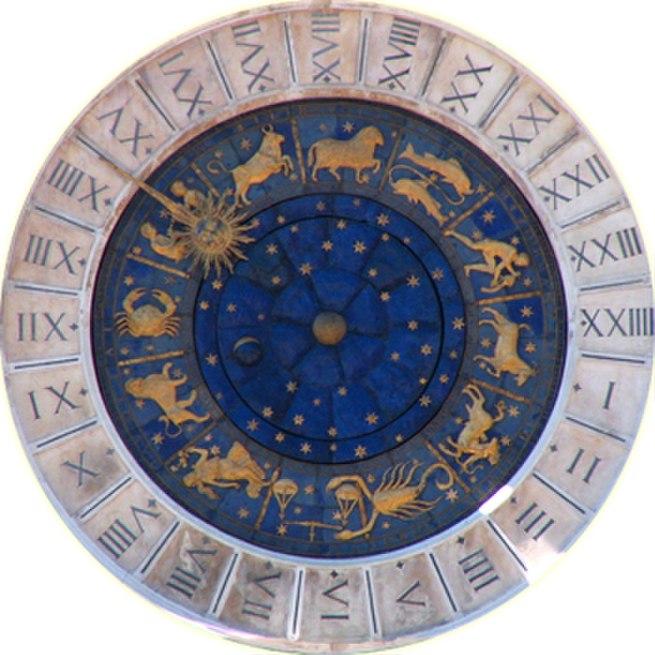
Main Difference
The main difference between Astrology and Astronomy is that the Astrology is a interpretation of astronomical events and stellar constellations in relation to earthly conditions, pseudoscience and Astronomy is a natural science that deals with the study of celestial objects
-
Astrology
Astrology is a pseudoscience that claims divine information about human affairs and terrestrial events by studying the movements and relative positions of celestial objects. Astrology has been dated to at least the 2nd millennium BCE, and has its roots in calendrical systems used to predict seasonal shifts and to interpret celestial cycles as signs of divine communications. Many cultures have attached importance to astronomical events, and some—such as the Hindus, Chinese, and the Maya—developed elaborate systems for predicting terrestrial events from celestial observations. Western astrology, one of the oldest astrological systems still in use, can trace its roots to 19th–17th century BCE Mesopotamia, from where it spread to Ancient Greece, Rome, the Arab world and eventually Central and Western Europe. Contemporary Western astrology is often associated with systems of horoscopes that purport to explain aspects of a person’s personality and predict significant events in their lives based on the positions of celestial objects; the majority of professional astrologers rely on such systems.Throughout most of its history, astrology was considered a scholarly tradition and was common in academic circles, often in close relation with astronomy, alchemy, meteorology, and medicine. It was present in political circles and is mentioned in various works of literature, from Dante Alighieri and Geoffrey Chaucer to William Shakespeare, Lope de Vega, and Calderón de la Barca.
Following the end of the 19th century and the wide-scale adoption of the scientific method, researchers have successfully challenged astrology on both theoretical and experimental grounds, and have shown it to have no scientific validity or explanatory power. Astrology thus lost its academic and theoretical standing, and common belief in it has largely declined. While polls have demonstrated that approximately one quarter of American, British, and Canadian people say they continue to believe that star- and planet-positions affect their lives, astrology is now recognized as a pseudoscience
— a belief which its advocates incorrectly present as scientific.
-
Astronomy
Astronomy (from Greek: ἀστρονομία) is a natural science that studies celestial objects and phenomena. It uses mathematics, physics, and chemistry in order to explain their origin and evolution. Objects of interest include planets, moons, stars, nebulae, galaxies, and comets. Relevant phenomena include supernova explosions, gamma ray bursts, quasars, blazars, pulsars, and cosmic microwave background radiation. More generally, astronomy studies everything that originates outside Earth’s atmosphere. Cosmology is a branch of astronomy. It studies the Universe as a whole.Astronomy is one of the oldest natural sciences. The early civilizations in recorded history made methodical observations of the night sky. These include the Babylonians, Greeks, Indians, Egyptians, Nubians, Iranians, Chinese, Maya, and many ancient indigenous peoples of the Americas. In the past, astronomy included disciplines as diverse as astrometry, celestial navigation, observational astronomy, and the making of calendars. Nowadays, professional astronomy is often said to be the same as astrophysics.Professional astronomy is split into observational and theoretical branches. Observational astronomy is focused on acquiring data from observations of astronomical objects. This data is then analyzed using basic principles of physics. Theoretical astronomy is oriented toward the development of computer or analytical models to describe astronomical objects and phenomena. These two fields complement each other. Theoretical astronomy seeks to explain observational results and observations are used to confirm theoretical results.
Amateurs play an active role in astronomy. It is one of the few sciences in which this is the case. This is especially true for the discovery and observation of transient events. Amateur astronomers have helped with many important discoveries, such as finding new comets.
-
Astrology (noun)
Divination about human affairs or natural phenomena from the relative positions of celestial bodies. from 14th c.
-
Astronomy (noun)
The study of the physical universe beyond the Earth’s atmosphere, including the process of mapping locations and properties of the matter and radiation in the universe.
-
Astronomy (noun)
Astrology.
